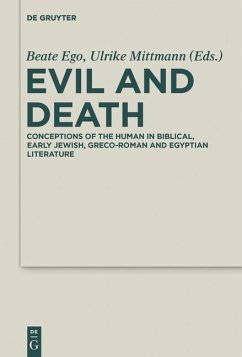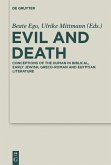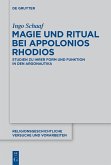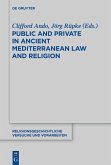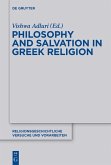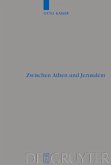Jewish anthropological beliefs during the Hellenistic-Roman period are an important but previously neglected area of biblical exegesis and Jewish studies. In an effort to address this deficiency, this volume brings together 20 essays related to the subject of sin and death, with special emphasis on integrating material from neighboring cultures. Thus, the volume provides an exemplary foundation for further research on ancient Jewish anthropology.
Dieser Download kann aus rechtlichen Gründen nur mit Rechnungsadresse in A, B, BG, CY, CZ, D, DK, EW, E, FIN, F, GR, HR, H, IRL, I, LT, L, LR, M, NL, PL, P, R, S, SLO, SK ausgeliefert werden.
"This volume makes an important contribution to Jewish and Christian anthropological studies, helpfully placing these texts into their larger cultural context. It also collects the various answers given in antiquity to the question still relevant today: What does it mean to be human?"
J. Brian Tucker in: Religious Studies Review, Volume 43, No. 2, June 2017, p. 167
"Der Band kann als wirklich gelungenes Beispiel für Interdisziplinarität gelten."
Stefan Bojowald in: SZRKG 111 (2017), 412-414
J. Brian Tucker in: Religious Studies Review, Volume 43, No. 2, June 2017, p. 167
"Der Band kann als wirklich gelungenes Beispiel für Interdisziplinarität gelten."
Stefan Bojowald in: SZRKG 111 (2017), 412-414

